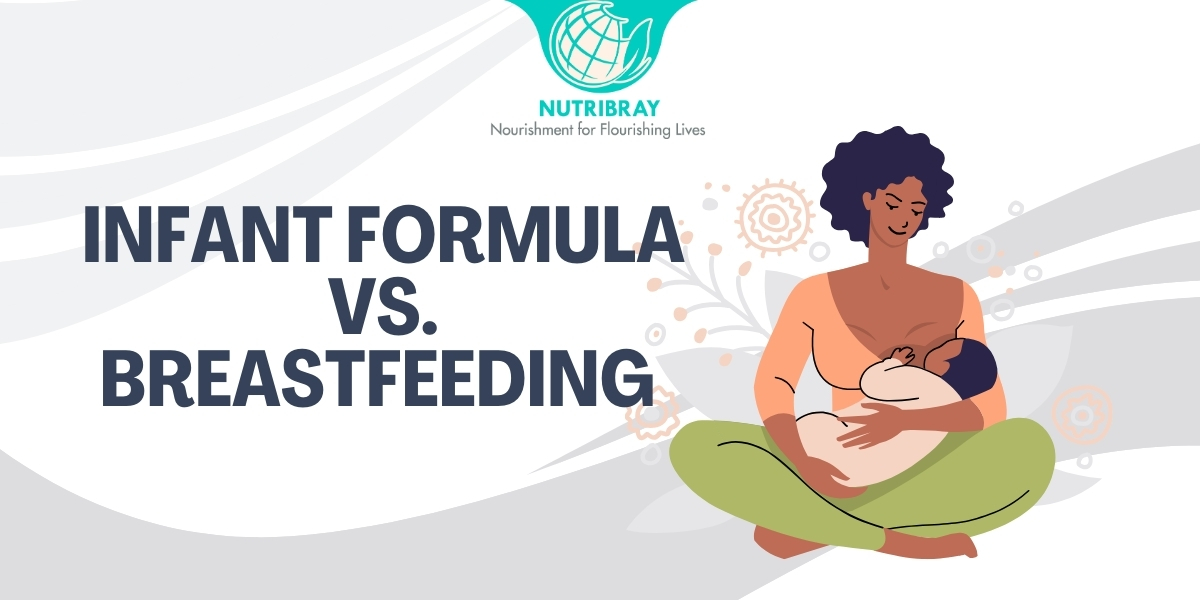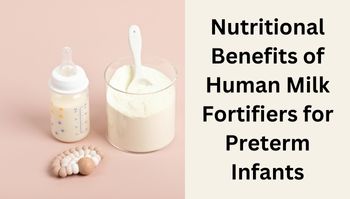As new parents, making informed decisions about your baby's nutrition is crucial for their healthy development. While breastfeeding is often considered the gold standard in infant nutrition, modern infant formulas have evolved significantly to provide a reliable alternative when breastfeeding isn't possible or needs supplementation. In this comprehensive guide, we'll explore the nutritional differences between breast milk and infant formula, helping you make an informed decision for your baby's needs.
The Natural Benefits of Breast Milk
Breast milk is uniquely adapted to meet your baby's nutritional needs, containing:
Dynamic Composition
Your breast milk's composition changes throughout the day and as your baby grows, naturally adapting to their developing needs. This remarkable ability ensures your baby receives optimal nutrition at every stage.
Immune-Boosting Properties
Breast milk contains live antibodies and immune factors that help protect your baby from infections and strengthen their developing immune system. These include:
- Immunoglobulins (particularly IgA)
- White blood cells
- Lactoferrin
- Lysozyme
Perfect Nutrient Balance
Breast milk provides an ideal balance of:
- Proteins that are easily digestible
- Essential fatty acids for brain development
- Carbohydrates for energy
- Vitamins and minerals in bioavailable forms
Modern Infant Formula: A Scientific Approach to Nutrition
When breastfeeding isn't possible, Nutribray's infant formula provides a carefully crafted alternative that closely mirrors breast milk's nutritional profile. Our formula is developed through extensive research to ensure your baby receives complete nutrition.
Key Features of Quality Infant Formula
Essential Nutrients
Modern infant formulas like Nutribray's are fortified with:
- DHA and ARA for cognitive development
- Iron for healthy blood cell production
- Vitamins D and K for bone development
- Prebiotics and probiotics for digestive health
Consistent Nutrition
While breast milk composition varies, formula provides consistent nutrition with every feeding, ensuring your baby receives reliable amounts of essential nutrients.
Making an Informed Choice
When to Consider Formula Feeding
Several circumstances might lead to choosing formula:
- Medical conditions affecting milk production
- Work schedules that make exclusive breastfeeding challenging
- Need for supplementation
- Adoption or surrogacy
How Nutribray Supports Your Choice
At Nutribray, we understand that fed is best. Our commitment to infant nutrition includes:
- Research-backed formula development
- Strict quality control measures
- Expert nutrition support for parents
- Various formula options to meet different needs
Practical Considerations
Preparing for Success
Whether choosing breast milk or formula:
- Consult with healthcare providers
- Establish a feeding schedule
- Monitor baby's growth and development
- Stay flexible as needs change
Nutribray's Support System
We provide comprehensive support through:
- 24/7 nutrition helpline
- Online resources and guides
- Regular formula quality updates
- Community support groups
While breast milk provides unique benefits, modern infant formulas like Nutribray's offer a scientifically developed alternative that ensures your baby receives essential nutrition. Remember, the best feeding choice is one that works for both parent and baby while ensuring optimal nutrition for healthy development.
Want to learn more about Nutribray's infant formula options? Contact our nutrition experts at info@nutribray.com for personalized guidance on choosing the right formula for your baby.
Disclaimer: This information is for educational purposes only and should not replace professional medical advice. Always consult with your healthcare provider about your baby's specific nutritional needs.








